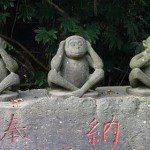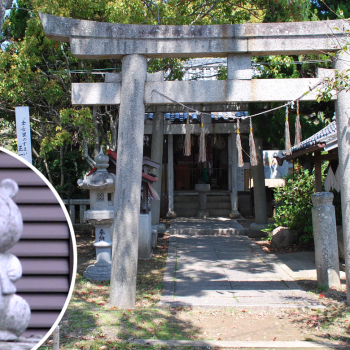
The Japanese characters for “Inari,” 稲荷, can be literally translated as “carrying rice,” and probably derive originally from ine-nari, meaning “growing rice.” Inari is therefore first and foremost a rice deity. This would carry great importance in Japan, because rice has been at the centre of Japanese civilization since ancient times. Even today, rice is considered sacred and is treated with respect.
Inari’s status as a rice deity has led to other associations in turn – agriculture, fertility, sake (rice wine), and prosperity. Broadly speaking, Inari symbolises material abundance – be it food or wealth – and, by extension, vitality.
















